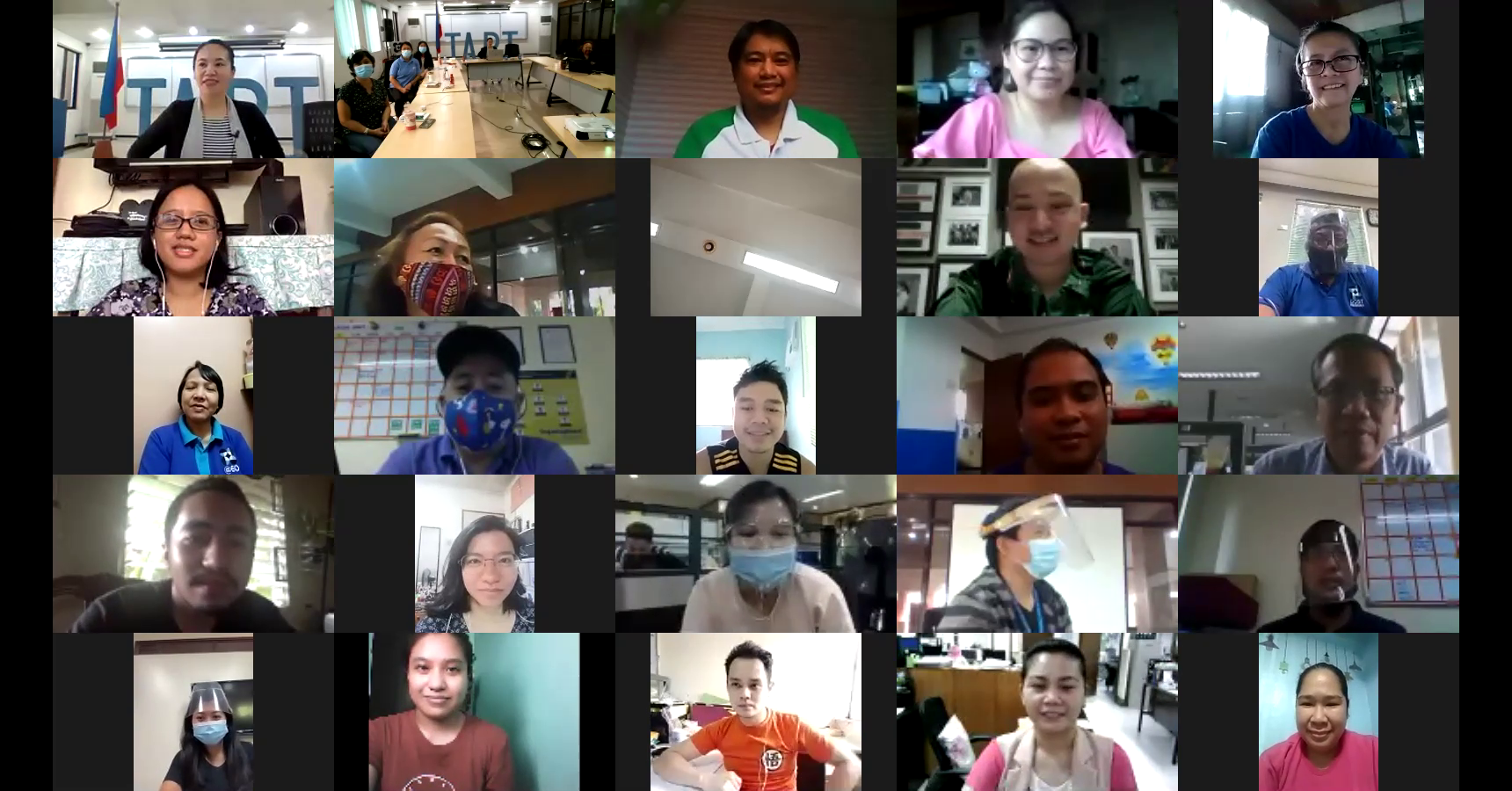As the first organization-focused activity under gender and development (GAD), the GAD Focal Point System organized the virtual GAD Orientation-Seminar on 06 October 2020.
The organization-focused activity addresses gender mainstreaming and issues within the workplace of the Technology Application and Promotion Institute of the Department of Science and Technology (DOST-TAPI) through capacity building of employees.

The DOST-TAPI GAD Focal Point System conducted a virtual GAD Orientation-Seminar on Gender Sensitivity on 06 October 2020
Spearheaded by Ms. Kristel May Gomez Magdaraog, registered social worker and university extension specialist from the University of the Philippines – Diliman, as resource speaker, the orientation-seminar covered extensive modules on gender sensitivity which was divided into two parts.
The first part focused on sex, gender, and sexual orientation, gender identity and expression (SOGIE) and was quickly followed by the second part which focused on social institutions and manifestation of gender bias.
Ms. Nora P. Gumia, DOST-TAPI Chief Science Research Specialist and Alternate DOST-TAPI GAD Focal Chairperson, expressed her enthusiasm that the orientation-seminar will serve as a platform for an exchange of ideas.
She also mentioned that the activity continues the discourse on issues concerning gender and development through the application of lessons learned on gender equality in everyday life.
“It also with optimism that we carry on the previous successes of GAD Focal Point System-initiated events where we have identified solid outputs brought about by the conduct of events,” said Gumia.
It can be noted that the Women Inventor Summit in 2019 has created at least ten women-led inventor groups nationwide.
Also from the previous year, the Focal System accomplished the publication of Administrative Order on GAD-Related Policies which adopted the Department’s GAD framework, used a gender-fair language in all DOST-TAPI issuances and documents, collected and utilized sex-disaggregated data, established gender-responsive facilities, and institutionalized gender analysis.
“But our momentum need not to dim for there are still issues and perceptions that need to evaluate or reevaluate to pull those who have been seemingly disenfranchised, discredited, or even discriminated to the reason that is gender,” emphasized Gumia.
The next webinars are scheduled on 13, 20, and 27 October 2020 and will focus on gender-fair language, gender analysis tools and Harmonized Gender and Development Guidelines, and gender mainstreaming evaluation framework, respectively.
DOST-TAPI S&T Media Service
Jund Rian A. Doringo